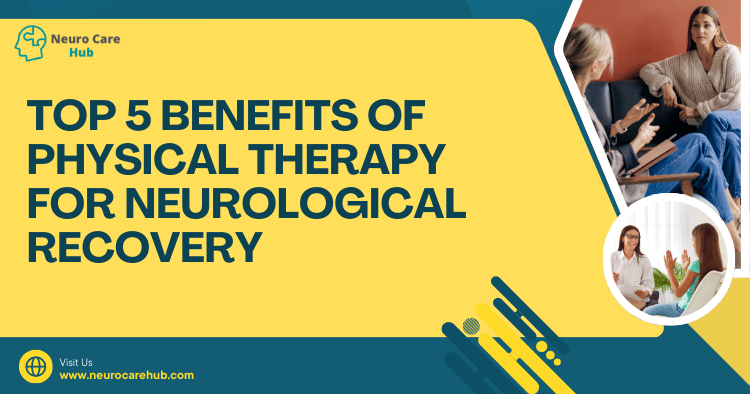Table of Contents
- Understanding Occupational Therapy
- Enhancing Daily Living Skills
- Improving Motor Function
- Boosting Cognitive Abilities
- Providing Emotional Support
- FAQs
Understanding Occupational Therapy
Occupational therapy (OT) is a client-centered health profession focusing on helping individuals achieve independence in their daily activities. This is especially vital for those recovering from neurological conditions—such as stroke, traumatic brain injury, or Parkinson’s disease—where OT plays a crucial role in regaining function and enhancing quality of life.
OT practitioners work closely with patients to develop personalized intervention plans addressing specific needs and goals. This holistic approach considers not only the physical aspects of recovery but also the psychological and social factors impacting the individual’s life.
For more insights on neuro care, visit Neuro Care: A Guide to Brain Health.
Enhancing Daily Living Skills
One of the primary benefits of occupational therapy for neurological recovery is its focus on enhancing daily living skills. This includes activities like dressing, cooking, and personal hygiene, which may be affected by neurological conditions.
Key Benefits:
- Personalized Strategies: OT practitioners develop tailored strategies to help individuals relearn daily tasks. For example, a therapist might introduce adaptive tools like button hooks for dressing.
- Task Analysis: Therapists break down complex tasks into smaller, manageable steps, making it easier for patients to navigate their daily routines.
- Home Modifications: Occupational therapists can recommend modifications to the home environment, such as grab bars in bathrooms or rearranging furniture for easier movement.
By focusing on these skills, individuals can regain the confidence and independence to perform daily tasks, significantly improving their quality of life.
For more on enhancing daily living skills through neuro care, check out Top 5 Ways Caregivers Enhance Neuro Care Effectiveness.
Improving Motor Function
Motor function rehabilitation is a crucial component of occupational therapy for neurological recovery. Many neurological conditions result in motor impairments, making it difficult to perform both fine and gross motor tasks.
Strategies Used in OT:
- Strengthening Exercises: Therapists design customized exercise programs targeting specific muscle groups, helping improve strength and coordination.
- Fine Motor Activities: Engaging in activities such as threading beads or using therapy putty can help enhance fine motor skills.
- Sensory Integration Techniques: These techniques involve using sensory experiences to improve motor function. For instance, weight-bearing activities can help with proprioception and balance.
Visual Element: Motor Function Recovery Table
| Activity | Objective | Example |
|---|---|---|
| Strength Training | Improve gross motor skills | Resistance band exercises |
| Fine Motor Skills | Enhance dexterity | Bead threading |
| Balance Activities | Increase stability and coordination | Standing on one leg |
Improving motor function not only aids in daily tasks but also contributes to overall physical health and well-being.
For more on neurological assessments, see Top 5 Methods Neurologists Use to Diagnose Disorders.
Boosting Cognitive Abilities
Neurological conditions can also impact cognitive functions such as memory, attention, and problem-solving. Occupational therapy addresses these challenges through various cognitive rehabilitation techniques.
Cognitive Enhancement Techniques:
- Memory Exercises: Therapists can introduce games and activities that target memory recall, such as matching games or storytelling exercises.
- Attention Training: Techniques like mindfulness and focused attention tasks can help improve concentration over time.
- Problem-solving Activities: Engaging in puzzles and strategic games encourages patients to practice their critical thinking skills.
By improving cognitive abilities, individuals can enhance their ability to engage in daily life, leading to greater independence.
For further insights into cognitive health, refer to Top 5 Tips for Choosing the Right Neurologist.
Providing Emotional Support
Recovery from neurological conditions can be emotionally draining. Occupational therapists focus not only on physical and cognitive rehabilitation but also provide essential emotional support.
Ways OT Offers Emotional Support:
- Building Rapport: Establishing a trusting relationship with therapists can help patients feel more comfortable discussing their feelings and setbacks.
- Setting Realistic Goals: Therapists assist patients in setting achievable goals, which can significantly bolster motivation and self-esteem.
- Incorporating Family: OT can involve family members in the rehabilitation process, providing a strong support system that fosters emotional resilience.
This emotional aspect of occupational therapy is vital for a holistic recovery process, addressing both mental health and physical rehabilitation.
For more on the importance of support systems in recovery, check out Top 5 Ways Family Support Enhances Neuro Recovery.
FAQs
What types of neurological conditions can benefit from occupational therapy?
Occupational therapy can aid recovery for various neurological conditions, including stroke, traumatic brain injury, Multiple Sclerosis, Parkinson’s disease, and cerebral palsy.
How long does occupational therapy last?
The duration of occupational therapy varies based on individual needs and conditions. Some patients may require therapy for a few weeks, while others may need ongoing support for months or even years.
Will my insurance cover occupational therapy?
Many insurance plans cover occupational therapy, but it’s essential to check with your provider regarding specific coverage details.
Can I do occupational therapy at home?
Yes! Many occupational therapists provide home exercise programs and adaptive strategies that patients can follow in their daily lives to reinforce what they learn in therapy sessions.
Occupational therapy is a powerful tool for those navigating the journey of neurological recovery. By enhancing daily living skills, improving motor and cognitive functions, and providing emotional support, OT practitioners empower individuals to reclaim their independence and improve their quality of life.
For further information on neuro care, consider visiting Top 5 Benefits of Early Intervention in Neuro Care.





